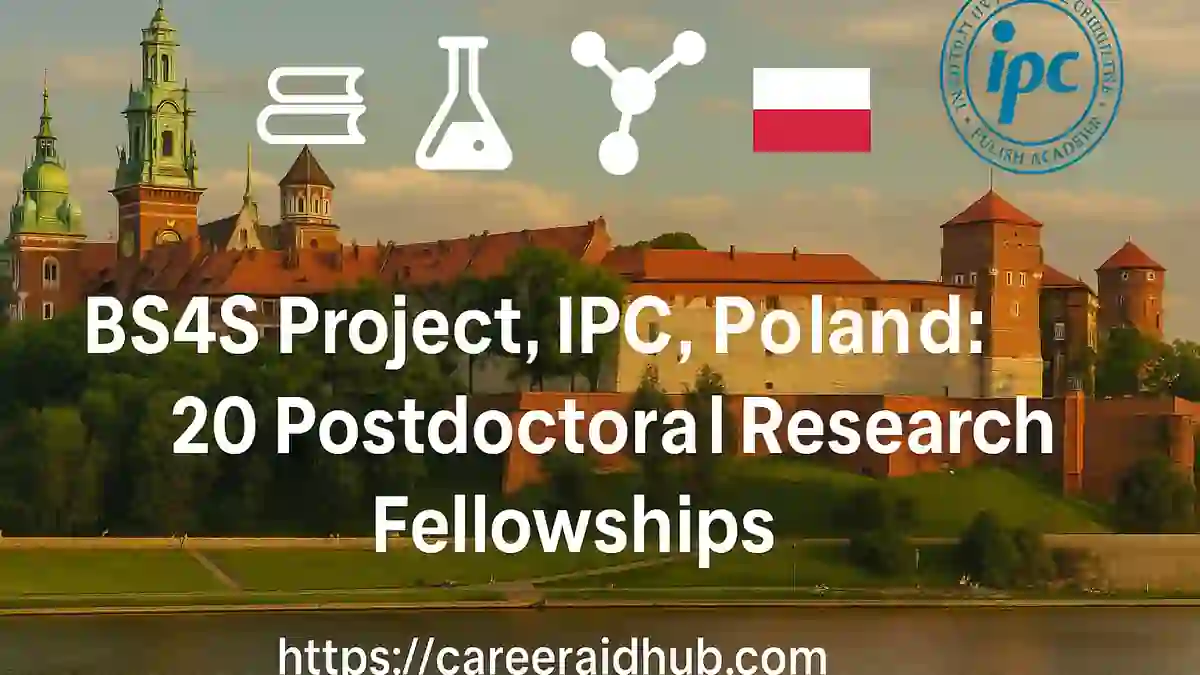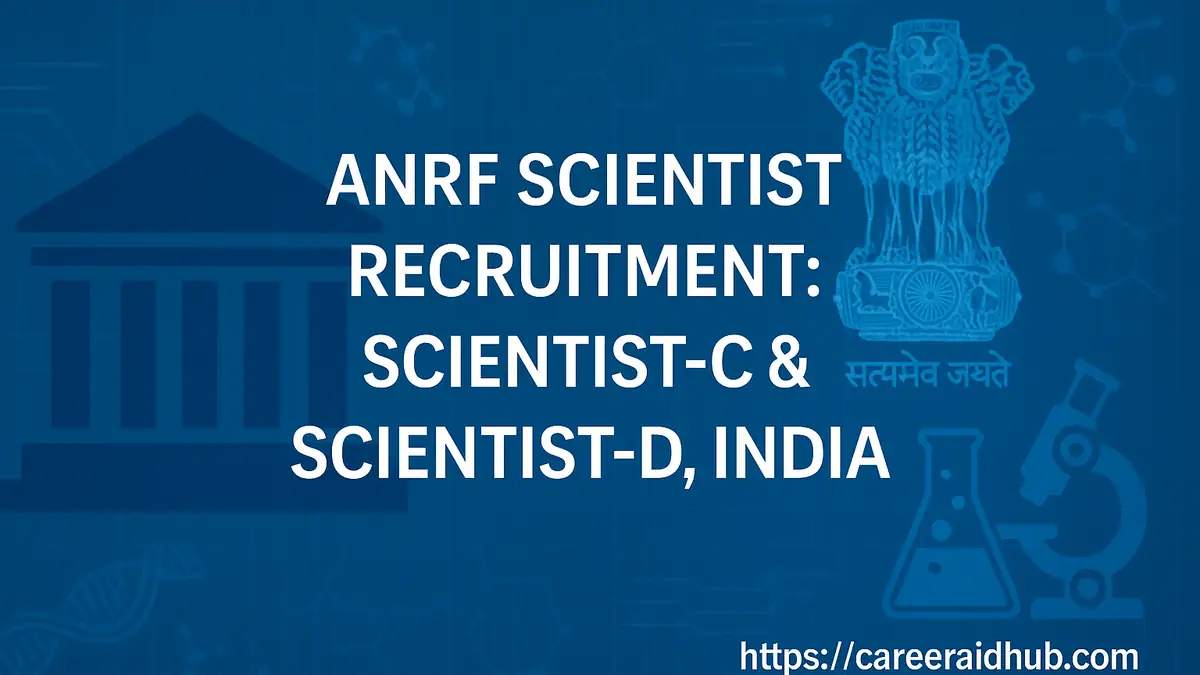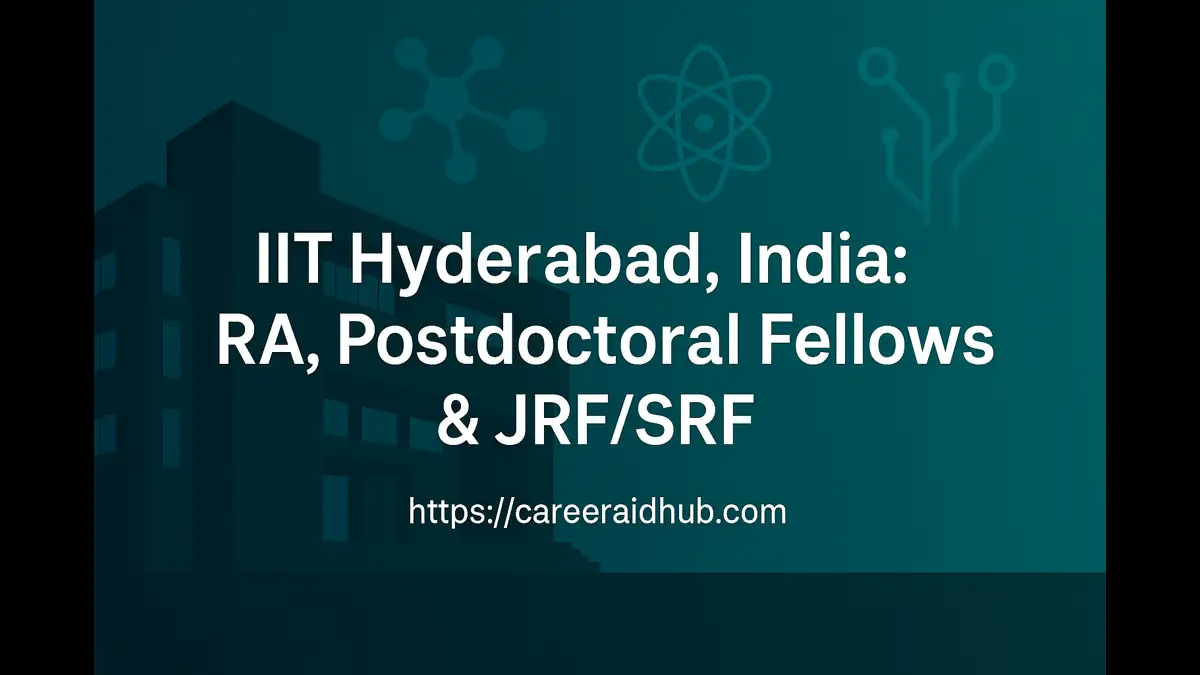The European Union is driving forward innovation in renewable energy technologies through flagship doctoral training programs that blend academic excellence, industrial collaboration, and international mobility. One such opportunity is the PhD Doctoral Candidate within Organic Electronics under the EU Training Network FADOS (Functional Advanced Devices for Organic Semiconductors).
The EU Training Network FADOS, supported by Horizon Europe – MSCA and hosted at Epishine AB (Sweden) with Chalmers University, offers a PhD Doctoral Candidate position in organic electronics. This fully funded fellowship focuses on low-light photovoltaics, providing advanced research training, international collaboration, and excellent career opportunities in sustainable energy innovation.
This initiative is supported by the Marie Skłodowska-Curie Actions (MSCA) of Horizon Europe, the EU’s primary framework for research and innovation funding. Designed to prepare the next generation of scientists, FADOS emphasizes the advancement of organic semiconductor devices, particularly in applications such as low-light photovoltaics, which have become essential for powering sensors, IoT systems, and portable electronics in modern energy ecosystems.
By joining this doctoral training network, candidates will receive not only a world-class PhD education but also access to structured training, interdisciplinary collaboration, and industrial mentoring that uniquely prepare them for impactful careers. This position will be hosted by Epishine AB, Sweden, in collaboration with Chalmers University of Technology, one of Europe’s most respected engineering and applied sciences universities.
About the FADOS Training
Network
The Functional Advanced Devices for Organic Semiconductors (FADOS) network is a structured doctoral program created to equip young researchers with skills and expertise in the development of organic semiconductor-based devices.
Key Goals of the FADOS Program
- Innovation in Organic Electronics: Train researchers to create high-efficiency devices for renewable energy and electronic applications.
- Bridging Academia and Industry: Foster partnerships across universities, research institutes, and companies.
- Sustainable Energy Solutions: Develop low-light photovoltaic technologies critical for smart homes, IoT devices, and sustainable energy systems.
- Global Collaboration: Promote knowledge exchange among EU partners, ensuring candidates gain broad perspectives in both fundamental research and applied technology.
The FADOS network is an ideal training ground for those who wish to combine theoretical science, experimental research, and practical industrial applications.
Host Institutions
Epishine AB, Sweden
Epishine AB is an innovative Swedish company recognized for its pioneering work in organic solar cells and light energy harvesting systems. The company specializes in developing scalable and sustainable photovoltaics capable of functioning effectively under low-light conditions, making them crucial for next-generation electronics.
Chalmers University of Technology
Chalmers, based in Gothenburg, Sweden, is consistently ranked among the top European universities for applied physics, materials engineering, and electrical engineering. The institution offers a strong academic
This collaboration ensures the fellow benefits from the combined strengths of academic depth and industrial application, preparing them to bridge the gap between scientific innovation and market-ready technologies.
Research Focus
The selected PhD researcher will work on organic photovoltaic devices tailored for low-light performance. The project will involve:
- Designing novel organic materials to improve efficiency and durability of solar cells.
- Investigating the device physics underpinning organic semiconductor performance.
- Exploring advanced fabrication techniques to enhance scalability.
- Developing prototypes for practical applications such as IoT sensors, smart wearables, and autonomous indoor devices.
The broader objective is to contribute to sustainable energy transitions by creating devices that can reliably harvest energy in environments where traditional silicon-based photovoltaics underperform.
Position Overview
Feature | Details |
Position | PhD Doctoral Candidate (First Stage Researcher – R1) |
Discipline | Organic Electronics, Materials Engineering, Applied Physics |
Location | Epishine AB, Sweden (with academic co-supervision at Chalmers) |
Funding Program | Horizon Europe – Marie Skłodowska-Curie Actions (MSCA) |
Contract Duration | 3–4 years (full doctoral cycle) |
Start Date | Flexible, to be confirmed upon selection |
Application Deadline | 19 October 2025, 23:59 CET |
Eligibility Criteria
Applicants must meet both academic requirements and the MSCA mobility rules.
Academic Requirements
- A Master’s degree (or equivalent) in:
- Physics (Applied Physics preferred)
- Materials Engineering
- Electrical/Electronic Engineering
- Related disciplines focusing on semiconductors, materials, or energy technologies
- Demonstrated academic excellence and research interest in organic electronics.
- Strong English language skills, both written and spoken.
- A Master’s degree (or equivalent) in:
MSCA Mobility Rule
- Candidates must not have resided or carried out their main activities in Sweden for more than 12 months during the last 36 months prior to recruitment.
- This rule ensures diversity and cross-border mobility within the EU research ecosystem.
Benefits of the Fellowship
Successful candidates will enjoy comprehensive support, including:
- Full Salary & Allowances: Funded by MSCA, including living allowance, mobility allowance, and possible family allowance.
- Advanced Training: Structured workshops covering both scientificand transferable skills.
- International Collaboration: Opportunities to participate in secondments across FADOS partner institutions and companies.
- Career Development: Mentorship in areas such as grant writing, entrepreneurship, and project management.
- Cutting-Edge Facilities: Access to Epishine’s industrial labs and Chalmers’ advanced research infrastructure.
This holistic support ensures candidates are prepared for successful careers in academia, industry, and beyond.
Application Process
The application process is managed entirely online through the FADOS/Epishine recruitment portal.
Required Documents
- Motivation Letter (max. 2 pages) – describing research interests and alignment with FADOS.
- Curriculum Vitae (CV) – max. 5 pages, including academic record and publications.
- Academic Transcripts & Certificates (Bachelor’s and Master’s).
- Proof of English Proficiency (IELTS, TOEFL, or university certification).
- Two Letters of Recommendation – academic or professional.
Steps to Apply
- Register on the FADOS official application system.
- Upload the required documents.
- Submit before the deadline of 19 October 2025 at 23:59 CET.
Next Cycle Prediction: Based on MSCA’s recurring timelines, the call is expected to reopen in mid-2027, and MSCA will publish updated details closer to that time.
Selection and Evaluation Criteria
Applications will be evaluated using the following benchmarks:
- Academic Excellence: Strong academic performance and relevant background.
- Research Proposal Quality: Originality, clarity, and feasibility of proposed research ideas.
- Integration Potential: Ability to collaborate with host institutions and contribute to the FADOS objectives.
- Motivation and Communication Skills: Clarity and persuasiveness of personal statements.
Shortlisted candidates may be invited for online or on-site interviews.
Why Apply?
This doctoral position offers:
- A chance to work on breakthrough technologies in renewable energy.
- The prestige of being part of the MSCA Horizon Europe program.
- Exposure to both academic and industrial research environments.
- An opportunity to build a career aligned with global sustainability goals.
For ambitious researchers, this fellowship is more than a PhD—it’s an opportunity to shape the future of energy harvesting and organic electronics.
Conclusion
The PhD Doctoral Candidate in Organic Electronics within the EU FADOS Training Network provides a transformative research and career-building opportunity for ambitious young researchers. With funding from Horizon Europe – MSCA, the program offers cutting-edge scientific training, industrial collaboration, and the chance to contribute to breakthrough innovations in renewable energy.
For details and official application submission Click here
Frequently Asked Questions (FAQs)
The FADOS program trains researchers in organic electronics, focusing on advanced devices like low-light photovoltaics, supported by Horizon Europe’s MSCA framework.
Applicants with a Master’s in physics, materials engineering, or related disciplines, and who meet MSCA mobility rules, can apply for this fellowship.
The position is hosted at Epishine AB, Sweden, with academic co-supervision provided by Chalmers University of Technology.
Yes, the fellowship is fully funded through Horizon Europe’s MSCA, covering salary, allowances, training, and research-related expenses.
The focus areas include organic electronics, device physics, fabrication of semiconductors, and development of high-performance low-light photovoltaic systems.
The fellowship typically runs for 3–4 years, depending on the university’s doctoral program requirements and research progress.
Applicants must submit a CV, transcripts, motivation letter, proof of English proficiency, recommendation letters, and relevant academic certificates.
Candidates must not have lived or worked in Sweden for more than 12 months during the 36 months before the recruitment date.
The official deadline is October 19, 2025, at 23:59 CET, with the next cycle expected to reopen in mid-2027.
Graduates can pursue careers in academia, renewable energy industries, or technology-driven startups specializing in organic electronics and sustainable energy systems.










